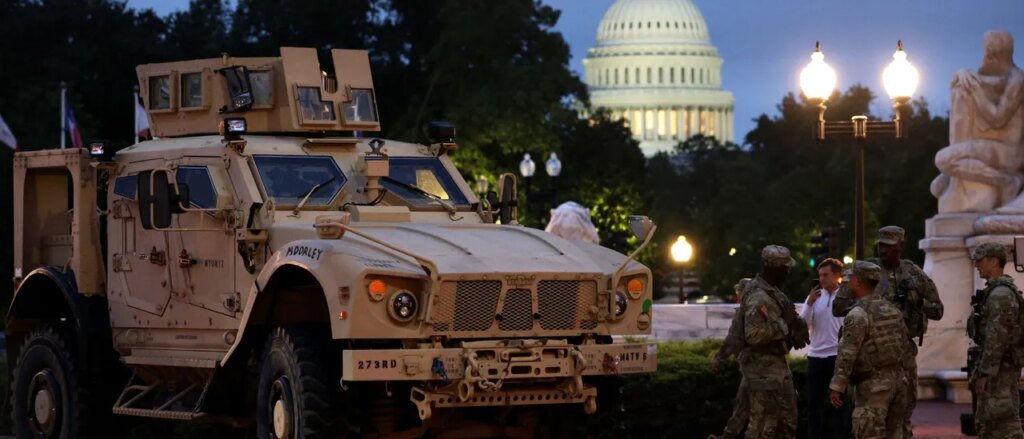Challenges for Trump in DC Judicial Appointments
The DC district court currently faces a serious backlog, which could hinder President Donald Trump’s attempts to address crime effectively. With a significant number of judicial vacancies, the left-leaning Judicial Nomination Committee plays a crucial role in the appointment process.
At present, there are 13 vacancies in the DC Superior Court system, including empty seats in the Court of Appeal. This lack of judges is affecting the district’s ability to manage criminal cases efficiently. If these vacancies remain unaddressed, it may considerably weaken the enforcement of Trump’s crime-fighting policies. Some experts believe that the president may struggle to nominate a strong candidate for a criminal judge due to the committee’s influence.
“President Trump’s mission to improve safety in Washington, DC is met with significant challenges resulting from outdated laws that have given control to ineffective local governments,” commented Mike Davis, president of the Article III Project. He criticized legislation from 1973 that he argues has allowed radical local authorities to undermine the judicial system.
Citing more than 1,000 arrests and over 100 illegal firearms confiscated, Attorney General Pamela Bondi noted recent successes in curbing crime. However, the situation remains complex, with additional arrests of individuals linked to violent activities.
According to the DC Method, candidates for judicial positions are nominated by the JNC and must be approved by the president within 60 days. However, once council members exceed 60 years of age, they can be appointed without presidential input, which is an unusual provision. The president is also limited to selecting from JNC’s seven-member recommendations.
Experts like Zack Smith from the Heritage Foundation argue that the current process is flawed and should align more closely with federal practices where the president and Congress have direct say over judicial appointments in the district.
Much of the JNC is composed of members from the mayor’s office, city council, and legal associations, almost all of whom have ties to previous Democratic administrations, raising concerns about impartiality. Many current members were appointed under Barack Obama and have retained their positions under Joe Biden, which adds further scrutiny to their decision-making.
Trump has managed to appoint only one judge to the DC Superior Court, Edward O’Connell, who he described as a beneficial choice for enhancing public safety. Yet, the JNC has shown little support for his overall judicial agenda, leading to critiques about leniency in sentencing within the Superior Court.
Cases have emerged highlighting concerns about judges granting overly lenient sentences, even for violent offenders. For instance, one individual, previously sentenced for murder, was released early and re-offended shortly after.
The situation worsened with recent incidents where suspects involved in violent crimes were released back into the community, prompting questions about public safety and the judicial system’s effectiveness in Washington.
The Trump administration has proposed reinforcing local police forces with federal resources while prioritizing proactive crime prosecution. However, experts claim resolving the issue of judicial vacancies is equally critical for improving safety in DC.
“Fewer judges lead to slower courts, and this bottleneck is detrimental for everyone involved,” noted Charles Lehman from the Manhattan Institute. He emphasized the importance of timely justice for both victims and the accused.
Trump may have several options to challenge the Judicial Nomination Committee’s process; he could potentially nominate a judge directly without committee approval and gauge congressional response. Additionally, the Department of Justice might seek a legal review regarding the JNC’s authority.
Since its establishment in 1973 through the Home Rules Act, there have been calls from some Republicans to overturn this legislation to restore federal oversight in DC judicial appointments. Trump has hinted at the desire to reconsider this law, stating it may be a pathway to reestablishing order in the nation’s capital.
As discussions continue, analysts suggest swift congressional action may be necessary to realign the judicial appointment system in Washington and bolster the rule of law.







